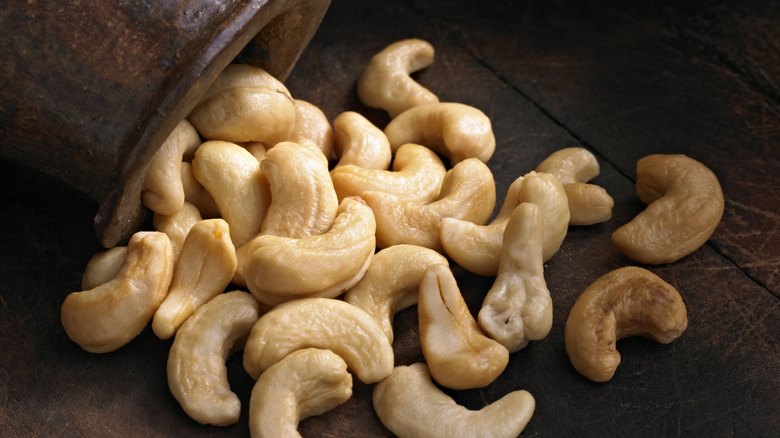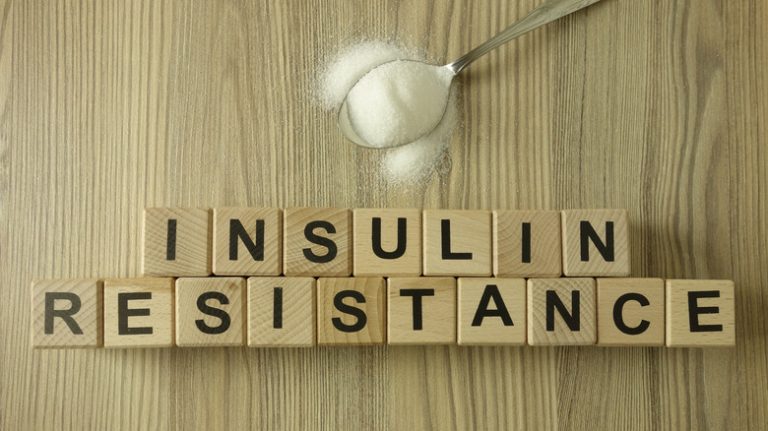As much as we focus on keeping our bodies healthy, our brains are equally deserving of our attention. While we tend to think of cognitive decline as something to worry about in old age, 2024 research published in the British Medical Journal (BMJ) suggests that our cognitive functioning may begin to dip starting as early as age 45. Making cashew nuts a part of our regular diet, however, may benefit our brain health in addition to providing us with loads of other great health benefits.
According to a 2024 survey published by Statista, 83.43 million people in the U.S. reported cashews as their most frequently used nut for cooking and snacking — making cashews the fourth most popular choice next to mixed nuts, peanuts, and almonds, which took first place.
The U.S. Department of Agriculture (USDA) reports that in 1 ounce of dry roasted cashew nuts with no salt added you’ll get 73.7 milligrams of magnesium, 139 milligrams of phosphorus, 160 milligrams of potassium, and 4.34 grams of protein. As outlined in a 2024 scientific overview published in Foods, cashews are also among various foods that are rich in B vitamins, which are known to support healthy brain function.
Eating cashews may support optimal brain functioning

There’s not one aspect of brain functioning that B vitamins aren’t involved in. For this reason, researchers from a 2024 scientific review published in Nutrients point out that people in under-resourced parts of the world who lack a sufficient amount of B vitamins in their diet are more susceptible to reduced brain functioning. Consuming cashews on a regular basis is one way to ensure we’re getting enough B vitamins through food sources.
Additionally, roasted cashews may hold protective properties against neurological damage and cognitive side effects associated with the chemotherapy treatment drug cisplatin, according to a 2024 rat study published in Heliyon. Patient side effects noted in association with chemotherapy treatment include decreased attention, reduced executive functioning, and memory impairment. Cisplatin, in particular, has been linked with decreased brain capacity in rodents. The study findings revealed, however, that a cashew-dense diet protected against neuron damage in the brains of rats treated with cisplatin.
Eating cashews may help lower anxiety too

The neuroprotective effects of cashews may also help lower anxiety associated with eating a high-fat diet, according to a 2024 study published in Behavioural Brain Research. Overconsumption of foods high in fat has been shown to impact brain functioning, which can increase levels of anxiety. The researchers looked at how eating cashews affected anxious behavior in rats with high cholesterol, another factor known to influence brain functioning and anxiety disorders. Cashews, however, are rich in unsaturated fatty acids, which support optimal brain development and lessen anxiety and depression symptoms. The study findings showed that the consumption of cashew nut flour counteracted the anxiety-inducing effects of a high-fat diet in rodents with dyslipidemia.
If you’re considering eating more cashews, it’s important to note that cashews harvested raw contain a naturally occurring toxic compound called “urushiol,” and should not be eaten in this state (per Healthline). However, commercially sold cashews have been thoroughly heated (sometimes multiple times) and shelled, making them safe to enjoy. If you see cashew nuts labeled as “raw” in the store, know this simply means that the cashews have been processed without any additives.
If you’re interested in learning more about foods that impact anxiety, check out “The One Specific Ingredient In Your Food That May Also Be Giving You Anxiety.”








